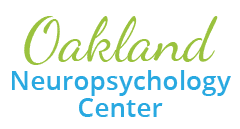What to do when symptoms don’t improve?
Kids (and adults) are prone to bumping their heads a time or two during their lifetimes. However, these bumps to the head do not usually result in a serious injury. In fact, our brains are surrounded by three protective layers, called meninges, which absorb the shock of most impacts to the head. This is why we are able to shake our heads without getting a brain injury! Unfortunately, when an impact is powerful enough, these protective layers may fail and lead to an injury to the brain – often called a traumatic brain injury or TBI. These injuries range from mild to severe, with mild TBIs also being referred to as concussions. In particular, the Centers for Disease Control and Prevention (CDC) defines a concussion as “a disruption in the normal function of the brain caused by a bump, blow, or jolt to the head.” These injuries can cause a variety of physical, emotional, sleep-related, and cognitive/thinking symptoms. Although moderate and severe TBIs can often lead to long-term consequences, concussions typically resolve quickly without any lasting symptoms. In fact, research has shown that the majority of concussion symptoms fully resolve within 4 weeks post-injury. Unfortunately, because all brain injuries are unique, some people experience symptoms which persist beyond this time period, which is considered a “prolonged” or “complicated” concussion recovery. While the risk factors leading to prolonged concussion symptoms are not quite clear, there are many steps that can be taken to help ease the symptom burden and promote a fast recovery.
What do I do if my concussion symptoms are not improving?
If you have experienced a concussion and your symptoms have persisted beyond the typical 28-day recovery period, try not to get discouraged! You are still expected to make a full recovery. First, you should be sure to consult with your medical doctor to guide your treatment plan. At Oakland Neuropsychology Group, we also provide unique services that can help you return to your normal level of functioning. Specific services offered include:
- Neuropsychological evaluations: If you have noticed changes in your thinking or learning abilities after a concussion, this type of evaluation can determine your cognitive strengths and weaknesses. For example, we will assess skills that may be affected by a brain injury such as attention, memory, and processing speed. If you are having problems in any of these areas, we will help determine a plan to strengthen these skills and aid your return to school.
- Concussion-targeted cognitive behavioral therapy: Prolonged concussion symptoms can also lead to changes in your quality of life, such as sleep problems, difficulties with relationships, and changes in school performance. At Oakland Neuropsychology Group, Dr. O’Neill offers concussion-specific therapy which can help identify negative thinking and behavior patterns, and work on a plan to get you back to your pre-injury level of functioning.
- School collaboration: After a concussion, it can be hard to get caught up with missed tests and assignments. Dr. O’Neill can collaborate with your teachers and school administrators to get you back on track with schoolwork.
Keep in mind that after a concussion, you will get better! Even if your symptoms last longer than usual, we expect that you will make a full recovery. Dr. O’Neill and the team at Oakland Neuropsychology Group are happy to work together with you and your family to get you feeling back to yourself as quickly as possible.



